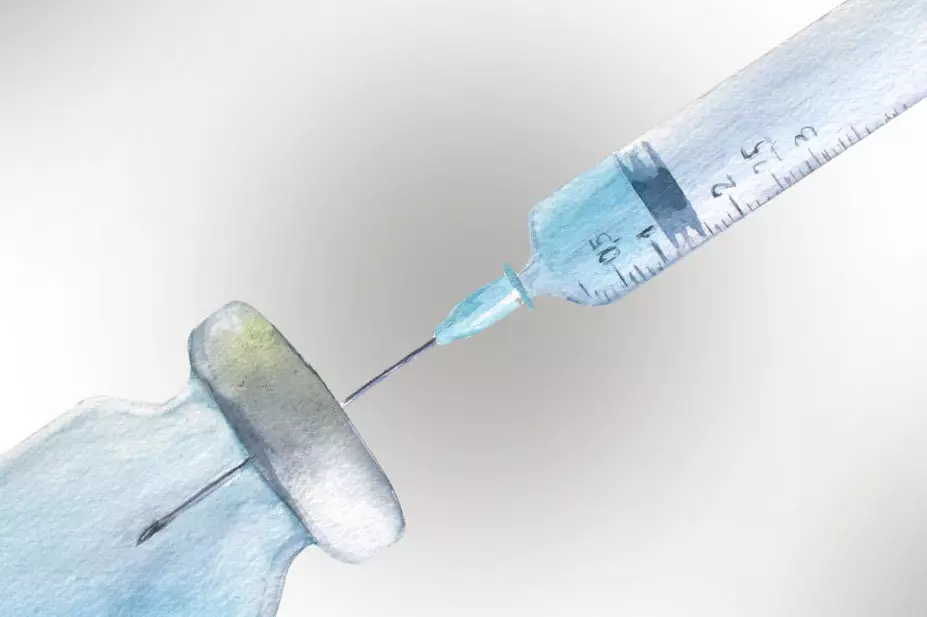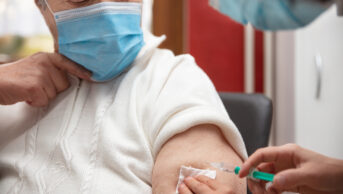
Shutterstock.com
Ordinarily, our pharmacy aseptic service prepares crucial injectable medicines, like chemotherapy for cancer patients, or intravenous nutrition for patients who can’t feed.
But that was until March 2020, when we realised it would be no ordinary year. Suddenly, on top of providing for our usual patients, we had to prepare critical care medicines in ready-to-administer syringes to meet the rising demand from intensive care units (ICU), which were beginning to fill up with patients with COVID-19.
Our ready-to-administer syringes were a godsend for our ICU nurses — who, instead of wasting valuable time drawing up injectable medicines, could devote themselves entirely to their critically ill patients. Nationwide, hundreds of nursing hours were, and continue to be, saved each week because of this work.
Later, in October 2020, we took on another new role. We were approached by our pharmacy clinical trials team to prepare a product for a major COVID-19 trial: the ‘Randomised Evaluation of COVID-19 Therapy’ (RECOVERY).
The RECOVERY trial, set up in March 2020 and run by the University of Oxford, was rolled out across the UK to identify effective treatments for patients hospitalised with suspected or confirmed COVID-19. By June 2020, the trial had already highlighted the benefit of dexamethasone in patients with severe respiratory complications of COVID-19.
The trial needed our team’s skills for the arms involving an injectable infusion — REGN-COV2 — which involved the mixing of two monoclonal antibodies (mAbs), casirivimab and imdevimab, both of which are manufactured by the biotechnology company Regeneron.
Regeneron believes this “cocktail” of mAbs can target the spike protein of the SARS-CoV-2 virus at separate locations, reducing the likelihood of the virus being able to mutate successfully to escape the antibody’s blocking action.
The team’s expertise has been essential to this trial. We’ve accurately drawn up volumes, and made multiple aseptic manipulations with needles, syringes and infusion bags. We also designed and prepared worksheets with manufacturing methods, instructions and labels — all bespoke for this trial. All our processes during aseptic manufacturing have been subject to checks by accredited checking pharmacy technicians or pharmacists to minimise the risk of error.
In this case, the Regeneron mAbs mix should be prepared in a pharmaceutical isolator — it requires multiple aseptic manipulations of novel mAb agents, which could be harmful, so this way of working is safer for those involved. And a regional quality assurance pharmacist recommended that, owing to the novelty of these mAbs, and in the absence of robust safety data, nursing staff should avoid preparing this product at ward level, to limit their risk of harm.
All this was not without challenges: the biggest problem we faced was meeting the short turnaround time — often less than 24 hours — between the patient being randomised into the mAbs mixture arm, and the drug being administered. This meant that we had to be ready at short notice to prepare the mixture whenever we received a request from the clinical trials team.
It is not the first time we have been involved in clinical trials, which we regularly prepare products for, but we are so proud to be involved in such a ground breaking trial like RECOVERY and to be part of the search for a treatment for a virus that has affected us all.
Our colleagues have stepped up too. Our excellent research and development team has been very busy enrolling teams across the health board in many trials relating to COVID-19, such as the ‘Randomised Embedded Multi-factorial Adaptive Platform Trial for Community-Acquired Pneumonia’ (REMAP-CAP); the ‘Platform Randomised trial of Interventions against COVID-19 in Older People’ (PRINCIPLE); and the Oxford-AstraZeneca vaccine trial — all of which needed to be facilitated by our expert pharmacy clinical trials team.
Over the past year, we have all shown our resilience, determination and teamwork, alongside our expert technical skills — and in 2021, we are going to keep using these skills to support our patients, and tackle the new challenges that the COVID-19 pandemic could bring.
Owain Jones, principal pharmacist for quality assurance and quality control, Aneurin Bevan University Health Board


